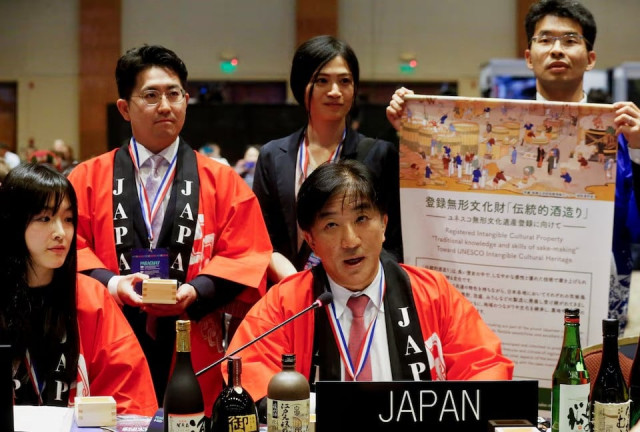UNESCO honours Japan’s ancient sake tradition
Japan's sake brewing, blending rice, water, yeast, and koji, now joins UNESCO's prestigious cultural heritage list

UNESCO has officially recognised Japan's traditional method of sake brewing as an "intangible cultural heritage," a distinction producers hope will spark global interest in the centuries-old rice wine, which has seen a decline in domestic popularity. Japanese delegates at a UNESCO meeting in Paraguay celebrated the honour by sampling sake.
The brewing process, which resembles beer-making more than wine production, involves fermenting rice, water, yeast, and a vibrant mould called koji over several weeks. The resulting drink can be enjoyed hot, cold, or at room temperature.
Sake remains an integral part of Japanese culture and traditions, frequently served at ceremonies and special occasions. However, domestic demand has waned, even as international interest has grown. Producers are optimistic that UNESCO's recognition will boost exports and revive local enthusiasm for sake.
Takehiro Kano, Japan's permanent representative to UNESCO, expressed his delight, stating: "We are very happy. International recognition through this mechanism will renew Japanese people's interest in this tradition, potentially creating momentum to pass these skills and expertise on to the next generation."
UNESCO, the United Nations' agency for education, science, and culture, adds practices, artworks, or skills to its intangible cultural heritage list to encourage their preservation for future generations.
On the same day, UNESCO delegates also approved the inclusion of Spain's Asturian cider culture and Guatemala's tradition of crafting giant barrels, among other cultural practices.



















COMMENTS
Comments are moderated and generally will be posted if they are on-topic and not abusive.
For more information, please see our Comments FAQ